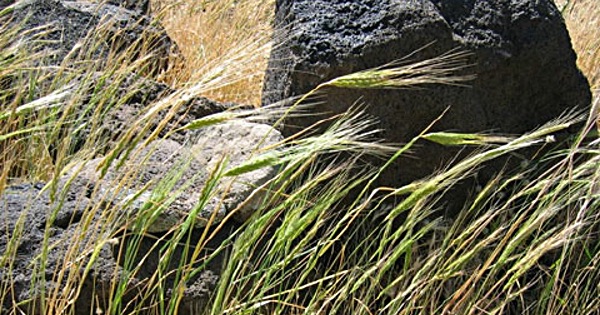
Podcast: Play in new window | Download (Duration: 6:00 — 4.9MB)
Subscribe: Google Podcasts | Spotify | Android | RSS | More
In the 1960s, using the most primitive of tools, an American plant scientist demonstrated that a small family, working not all that hard for about three weeks, could gather enough wild cereal seeds to last them easily for a year or more. Jack Harlan’s experiments on the slopes of the Karacadağ mountains in Turkey offer a perfect gateway to this exploration of the history of bread and wheat.
Photo of Wild einkorn, wild emmer and Aegilops species in Karacadag mountain range by H. Özkan.
 It’s magic, I know. First a pretty ordinary grass becomes the main source of sustenance for most of the people alive on Earth. Then they learn how to turn the seeds of that grass into the food of the gods. Join me, every day in August, as I dig into Our Daily Bread for the Dog Days of Podcasting with short episodes on the history of wheat and bread.
It’s magic, I know. First a pretty ordinary grass becomes the main source of sustenance for most of the people alive on Earth. Then they learn how to turn the seeds of that grass into the food of the gods. Join me, every day in August, as I dig into Our Daily Bread for the Dog Days of Podcasting with short episodes on the history of wheat and bread.